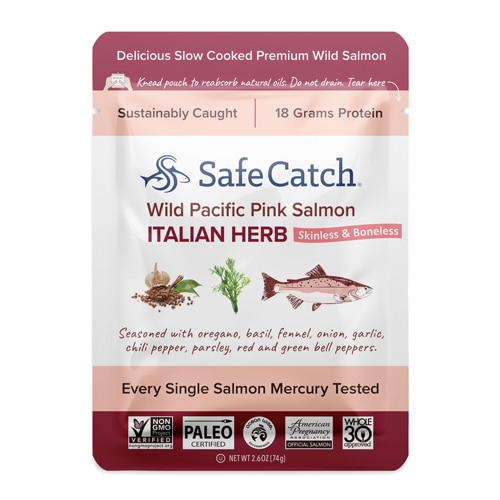Saving the planet is a big job, but it might start with making a small change to your diet, according to a
new study out of Tulane University and the University of Michigan.
Switching from ground beef to a more sustainable alternative -- such as ground turkey -- can significantly reduce your
carbon footprint, the researchers found.

They note that beef consumption contributes more to your carbon footprint than any other food choice commonly found in the American diet. Simply swapping out one serving per day of beef can reduce your diet’s greenhouse gas emissions by an average of 48%, and lower water-use impact by an average of 30%.
About one-quarter of global greenhouse gas emissions and 70% of global freshwater withdrawals are related to agricultural production, the researchers say. Moving away from foods that contribute mightily to those numbers -- such as beef -- can make a significant dent in emissions that harm the planet.
Dropping other items from your diet also can help reduce your carbon footprint. According to the researchers:
- Eating a serving of cod instead of shrimp results in a 34% reduction in a diet’s greenhouse gas emissions
- Drinking soymilk instead of dairy milk lowers emissions by 8%
- Eating peas instead of asparagus causes a 48% reduction in a diet’s water-scarcity footprint
- Eating peanuts instead of almonds reduces water-scarcity footprint by 30%
How to reduce your carbon footprint
Shrinking your carbon footprint through diet “sounds like a tall task,” but it is possible, says
Kelly Jones, a registered dietitian, sports dietitian and founder of Student Athlete Nutrition.
"There are so many simple changes that can be made in order to help improve the sustainability of one's eating pattern," she says.
For example, Jones notes that close to 40% of food produced in the U.S. goes to waste. Focusing on reducing such waste and taking other related steps – such as recycling food packaging instead of sending it to the landfill -- can curb carbon emissions.
Carefully planning your meals before you shop is one way to avoid wasting food. "By planning meals in advance, you're likely to be more efficient with grocery shopping and have a plan for all of the fresh foods you purchase," Jones says.
Another way to reduce food waste is to skip some fresh fruits and vegetables and instead purchase alternatives that resist spoilage, such as steam-peeled canned tomatoes or frozen berries, Jones says.
Moving away from beef and other types of meat is another great way to reduce your environmental impact.
“It's becoming more well-known that a diet more rich in whole plant foods may be better for the environment,” Jones says.
She recommends choosing whole plant foods that are less processed, as they generally require a reduced level of carbon emissions.
“While there may be some benefit to faux meats, turning to beans, lentils and soy products such as tempeh and tofu can support a better carbon footprint,” Jones says, adding that little is done to these foods after they are harvested.
Finding a middle ground
Although
cutting back on meat is a great way to help the environment, it doesn't mean you can never again sink your teeth into a juicy burger.
"Recommending complete avoidance of foods usually backfires," according to Jones. She says many people who quit a food end up eventually throwing in the towel and returning to the forbidden fruit with a vengeance.
Instead of giving up meat completely, simply try to tip the scales in favor of eating more plants. "It's best to focus on more
inclusion of plant foods rather than exclusion of animal products," Jones says.
So, adjust how often you eat meat, and be more mindful of the type of meat you consume, Jones says.
"I always encourage smaller portions of higher-quality options," Jones says. For example, if you can afford it, you might buy beef from local farms rather than from concentrated animal feeding operations, known as CAFOs, she says.
Buying organic foods also may help. Jones acknowledges that the concept of “organic food” has become somewhat controversial recently, both due to its cost and questions about whether it offers nutritional advantages.
Still, she says opting for some types of
organic foods may help you support the use of fewer synthetic pesticides that impact the environment.
Finally, Jones says making the right choices when buying seafood also can reduce your carbon footprint.
This includes eating some types of farmed fish and looking for Marine Stewardship Council (MSC) label, which denotes wild fish or seafood from fisheries that meet specific requirements for sustainable fishing.
“Many people gravitate to only purchasing wild-caught fish, but overfishing is a serious problem disrupting our ocean life,” Jones says, adding that an imbalance in the food chain of oceans and seas “can result in long-term environmental consequences.”
 They note that beef consumption contributes more to your carbon footprint than any other food choice commonly found in the American diet. Simply swapping out one serving per day of beef can reduce your diet’s greenhouse gas emissions by an average of 48%, and lower water-use impact by an average of 30%.
About one-quarter of global greenhouse gas emissions and 70% of global freshwater withdrawals are related to agricultural production, the researchers say. Moving away from foods that contribute mightily to those numbers -- such as beef -- can make a significant dent in emissions that harm the planet.
Dropping other items from your diet also can help reduce your carbon footprint. According to the researchers:
They note that beef consumption contributes more to your carbon footprint than any other food choice commonly found in the American diet. Simply swapping out one serving per day of beef can reduce your diet’s greenhouse gas emissions by an average of 48%, and lower water-use impact by an average of 30%.
About one-quarter of global greenhouse gas emissions and 70% of global freshwater withdrawals are related to agricultural production, the researchers say. Moving away from foods that contribute mightily to those numbers -- such as beef -- can make a significant dent in emissions that harm the planet.
Dropping other items from your diet also can help reduce your carbon footprint. According to the researchers:





